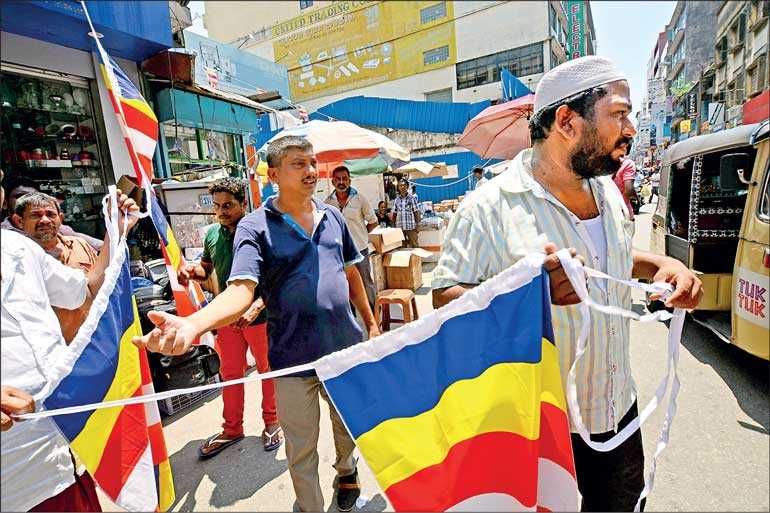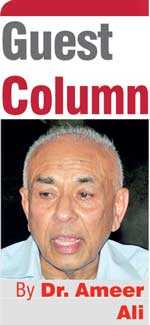Sunday Feb 15, 2026
Sunday Feb 15, 2026
Saturday, 29 August 2020 00:11 - - {{hitsCtrl.values.hits}}

Eastern Province is the rice basket of Sri Lanka. It is also a province in which all three communities, Sinhalese, Tamils and Muslims, live quite peacefully with an understanding of each other’s cultural heritage and sensitivities – Pic by Shehan Gunasekara
 Eastern Province (EP) is the rice basket of Sri Lanka. It is also a province in which all three communities, Sinhalese, Tamils and Muslims, live quite peacefully with an understanding of each other’s cultural heritage and sensitivities.
Eastern Province (EP) is the rice basket of Sri Lanka. It is also a province in which all three communities, Sinhalese, Tamils and Muslims, live quite peacefully with an understanding of each other’s cultural heritage and sensitivities.
It is also a fact that since independence there had been a concerted attempt on the part of the majoritarian state to populate that province with more and more Sinhalese from the south in the name of economic development of the Dry Zone, but also as a bulwark against the rising tide of Tamil nationalism, which obviously based its strength on Tamil population density in Northern and Eastern provinces. More crucially, it was the revolt from the east that signalled the doom of Tamil separatism under LTTE.
Thus, historically EP has played an important and constructive role in the political, economic and cultural development of Sri Lanka, and the province deserves more assistance and encouragement from the state to continue with its role. Instead, any attempt to disturb the communal harmony and inter-cultural understanding prevailing in that province will be a disaster to the development of the whole country.
In view of the delicate balance in the communal and cultural architecture of EP and its impact on the economy, the President’s appointment of a special Task Force in June this year, to undertake a comprehensive survey of archaeological sites in the Eastern Province, raises some serious concerns. Although on the face of it, it looks a necessary step in the right direction to preserve the historical and cultural legacy of this country, a closer look at the circumstances leading to the formation and composition of the TF would reveal that the real purpose appears to accomplish the aims of a different agenda.
The very composition of the TF membership, with 11 members to start with, including two from Buddhist clergy, enlarged to 15 recently with the addition of four more Buddhist prelates, and headed by an Army General (retired), all of whom from the Sinhalese community is a recipe for trouble. The situation is made worse because of the rudimentary expertise in archaeology among great majority of the TF members.
The ultra-nationalist political agenda behind this TF was brought to light already by Rajan Philips and Tissarani Gunaratne in their separate contributions to this journal on 14 June 2020. Two days before them, Dr. Nirmala Chandrahasan in her article to the ‘Island’ explained the delicate mix of Buddhist and Hindu heritage sites in that Province. There are also Islamic places of worship that are centuries old. Moreover, the Gazette notification, in justifying the reason for including more prelates to the TF, also admits that there are at least a few archaeological sites in EP which are not Buddhist.
“Since many of the archaeological heritages in the Eastern Province are based on the Buddhist religious background and associated with those places of worship, it has been recognised that the guidance and patronage of the venerable Maha Sangha is still needed in the identification and management of those heritages,” says the notification. Why then the President failed to appoint at least a couple of Tamil and Muslim archaeologists to the TF?
In fact, it was not Sambanthar from TNA, but Douglas Devanada, a supporter of SLPP Government who asked for Tamils also to be included in that membership.
MPs have to either put up or shut up
According to one source, there are at least 10 experts within the Tamil community who are archaeologists. By ignoring Devananda’s request, the President has made it clear to the minority community parliamentarians on government side that his way is the only way and that these MPs have to either put up or shut up. At one stage, it was reported in ‘Ceylon Today’ on 3 July 2020 that the president was prepared to appoint Tamil and Muslim members to this TF. What happened to that willingness? The answer is obvious. Buddhist supremacists would not have a bar of it, because their agenda goes beyond excavating ancient ruins and to grabbing land for Sinhalese settlements.
EP in 2012 census had a population mix of 40% Tamils, 37% Muslims and 23% Sinhalese, which make the two minority communities with 77%, the overwhelming majority. Within EP, it is in the Batticaloa District that Sinhalese are too weak in strength as shown below:
Ampara: Sinhalese 38.7%, Tamils 17.4% and Muslims 43.6%
Batticaloa: Sinhalese 1.2%, Tamils 72.8% and Muslims 25.5%
Trincomalee: Sinhalese 27%, Tamils 32.3% and Muslims 40.4%
Although the problematic TF started its work in Pottuvil in the Ampara District just before the election, and immediately ran into trouble with Muslims, its future activities will no doubt extend into the Batticaloa District, which had already witnessed in 2016 a ratbag of BBS monks and their supporters rampaging through Punanai and Pankudaveli areas ostensibly to erect Buddha statues. Even more recently, it was reported that Tamil youth chased out some unruly bhikkus trying to erect a Buddhist temple in Vellaveli in Batticaloa District. These were of course illegal activities by recalcitrant Buddhist elements, but what were illegal for BBS and its monks could now become legal if the TF could unearth Buddhist ruins in various parts of EP districts.
The main problem for the TF is to determine the spots for excavation and “identify the extent of land that should be allocated for such archaeological sites”. Larger the extent allocated more would be the potential for encroaching into private property. EP, as pointed out before, is the granary of the country and archaeological excavations would certainly affect paddy lands owned and occupied by Tamils and Muslims. Earlier, trouble with Muslims in Pottuvil started because the archaeologists encroached into privately owned paddy lands and residential properties.
P.K. Balachandran quotes Dr. Jagath Weerasinghe, a senior Professor of Archaeology at Kelaniya University, who said “archaeology is a cooperative venture with the local people. Their cooperation is necessary for a successful excavation and study to come to scientifically arrived conclusions” (Daily Express). Can the TF solicit the cooperation of Tamils and Muslims of the area? In support of the Professor’s contention, one should be reminded of an incident that took place more than 30 years ago when the late Professor Senake Bandaranaike, an eminent archaeologist, wanted to excavate Ibbankatuwa in Dambulla District.
Sinhalese farmers threatened to kill anyone entering their lands in which the excavators were to start their digging. The farmers were won over eventually and it appears to have taken more than 30 years to complete the task. Such problems bound to recur in the east and more often, because according to one source, around 2,000 sites are said to have been earmarked for excavations. This may be an exaggeration. Yet, even one half of that that number portends trouble in EP. It may be in the expectation of such troubles that the President appointed a retired General as the chairman of his TF and has asked public officials to render all necessary assistance if required by the chairman.
Another related issue is the fate of the acquired land if no ruins were found in it. There was one report which said that the chairman of the TF would prefer to leave those lands under the custody of the prelates. What for? Are they going to till that land themselves and make it agriculturally productive or become a new class of absentee landlords leasing it to Sinhalese tenants? If they are private lands they should revert back to their original owners.
In summary, the TF is going to face opposition from both Tamils and Muslims, if they proceed with their task without consulting the locals. Already, Tamils in the north are boiling with anger in the face of land grab by security forces and intruders from outside, and let the government not repeat it in the east in the name of protecting Buddhist heritage.
(The writer is attached to the School of Business and Governance, Murdoch University, Western Australia.)